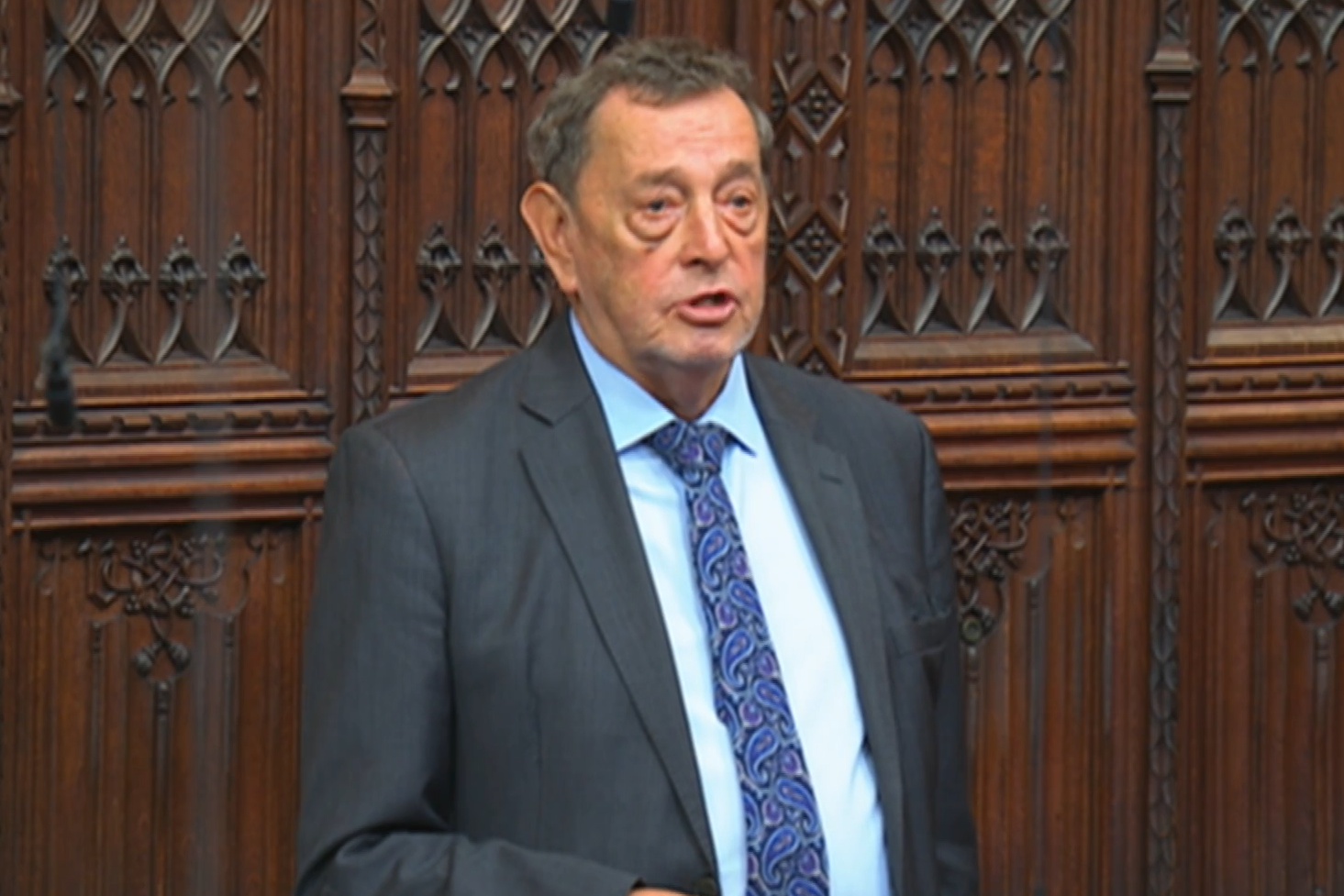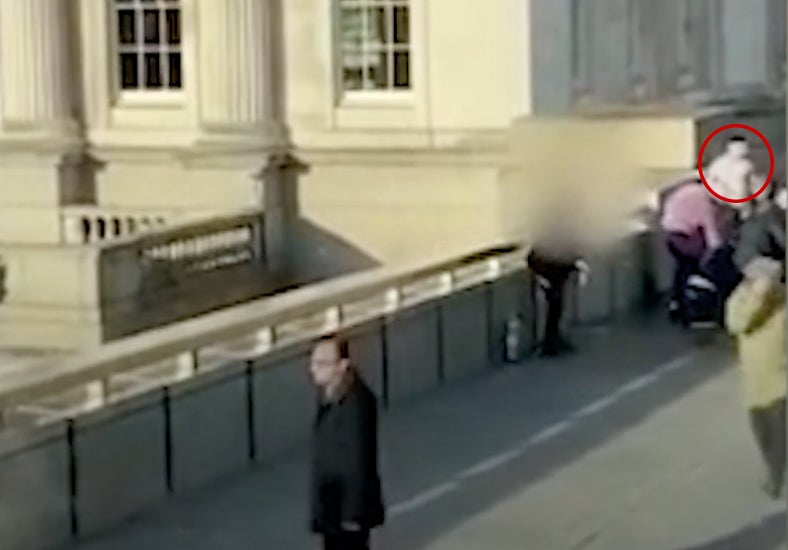
The government has been warned not to be “on the wrong side of history” as the plight of prisoners trapped under indefinite jail terms was compared to high-profile scandals involving the Post Office Horizon software, Windrush, and infected blood products.
In an impassioned bid for the government to resentence almost 2,700 inmates who are languishing under abolished imprisonment for public protection (IPP) jail terms, Labour peer Tony Woodley called for ministers to “end this scandal and give hope at long last to the hopeless”.
“History is being written right now, and my plea to government is this: don’t be on the wrong side of history,” Lord Woodley told the House of Lords during the second reading of a bill to resentence IPP prisoners, 90 of whom have already taken their own lives in jail.
“Don’t wait for the ITV drama to cast you unfairly as uncaring, cold-hearted timewasters who left damaged people, many of them broken by the state, to rot away in prison while those in power stood by wringing their hands,” he said.
Despite the intervention, prisons minister and Labour peer James Timpson said the government will not support any form of resentencing, despite at least 700 IPP prisoners having served more than 10 years beyond their minimum term.
He told the Lords that inmates should work towards release through a refreshed IPP action plan, announced today, which campaigners have dismissed as “not worth the paper it’s written on”.

Liberal Democrat peer Sarah Ludford cited three examples of injustice revealed by The Independent, including the case of James Lawrence, who is still in prison 18 years after he was handed an eight-month jail term for threatening someone with a fake gun.
She also referred to the case of Thomas White, who set himself alight in prison after serving 12 years for stealing a mobile phone, and prisoner Yusuf Ali, who spent 61 days on hunger strike as he lost hope of ever being freed under his IPP jail term.
She challenged: “So what is this government going to do, keep these people locked up arbitrarily and indefinitely, just like in Guantanamo?”
Comparing the situation to other “horrendous injustices”, she added: “How many scandals have to be endured by the citizens of this country before a government finally says, no, we are not going to repeat the mistakes of the Post Office Horizon scandal, or Windrush, or infected blood, or Hillsborough, or Grenfell?”
The indefinite jail terms, which saw offenders handed a minimum term but no maximum, were introduced by New Labour in 2005 in a bid to be tough on crime. They were abolished in light of human rights concerns in 2012, but not retrospectively, leaving thousands languishing in prison until they can prove to the Parole Board that they are safe for release.
The system has left thousands of IPP prisoners – including many who were jailed for minor crimes – trapped as their mental health deteriorates, under a sentencing protocol that was branded “psychological torture” by the UN.

The architect of the flawed scheme, David Blunkett, has led calls for reform after admitting he regrets introducing the IPP scheme when he was Labour home secretary.
He said “I carry my responsibility heavily” as he implored the government to consider a “halfway house” of partial or prioritised resentencing if it will not accept “wholesale resentencing”.
This could be carried out by a panel of retired senior judges to avoid adding to the court backlog, he said, adding: “We’ve got to get this sorted.”
The Bishop of Gloucester also called for the prisons minister to think again on resentencing, while Liberal Democrat Lorely Burt, Baroness Burt of Solihull, challenged Lord Timpson over the government’s position.
“Is he seriously suggesting we leave them in limbo in a constant state of psychological torture for ever?” she said.
Lord Timpson told the chamber he was determined to support IPP prisoners, noting that, as CEO of his family business, Timpson, he had employed 30 people serving the sentence in the community.
However, he insisted that the government would not consider resentencing anyone currently serving an IPP term, because doing so would lead to the release of prisoners who had previously been turned down by the Parole Board. He said this would put “the public at an unacceptable risk of harm, which the government is not prepared to countenance”.
He laid out the government’s refreshed IPP action plan to help prisoners progress towards release, including prioritising IPP inmates for transfer to other prisons to undertake courses. Other measures contained in the plan include the introduction of an internal progress rating – described as a “traffic light” system – for each prisoner, which will be reviewed every six months.
The government’s offering of an updated action plan has been dismissed as cruel and “simply not good enough”, as figures published in the first annual IPP report show that the rate of release is “glacially slow”. Meanwhile, recalls to prison for breaches of the strict IPP licence conditions have risen, and the mean time served on each recall has soared to more than 25 months.
Lord Woodley, who backs The Independent’s campaign for all IPP prisoners to have their sentences reviewed, said: “[The refreshed action plan] is a positive step, but simply not good enough to address this industrial-scale miscarriage of justice.”
Campaigner Richard Garside, of the Centre for Crime and Justice Studies, said the recall figures show that the IPP sentence is reproducing like a virus, adding: “When you are faced with a virus, you need a vaccine, and the vaccine is resentencing.”

Reformed IPP prisoner Marc Conway, who was one of the heroes of the Fishmongers’ Hall terror attack, said the action plan will never work in a prison system that is overcrowded, underfunded, and under-resourced.
“No matter what plan you put in place, unless the prison system is running appropriately and functioning how it’s supposed to be, then it’s not worth the paper it’s written on,” he added. “The prison system is a system not fit for purpose.”
Campaigners from the United Group for Reform of IPP (Ungripp) said they were “extremely disappointed” that the government had ignored an opportunity to address the injustice.
“The IPP sentence was abolished almost 12 years ago,” a spokesperson said. “Attempting to fix it by trying to progress people through an overcrowded, broken system so many years after the sentence was abolished is just cruel and adds to the injustice.”
A Ministry of Justice spokesperson said: “It is right that IPP sentences were abolished, and we recently terminated the licences of 1,742 rehabilitated offenders.
“This government is determined to do all we can to support the remaining IPP prisoners – with new tailored plans for those struggling to progress. This includes urgently ensuring all IPP prisoners are in the best prison to access the rehabilitation support they need.”







